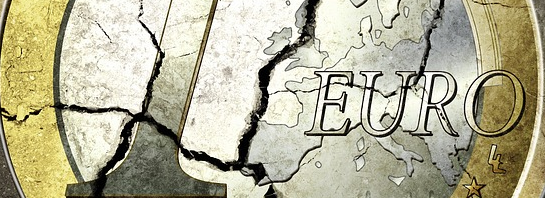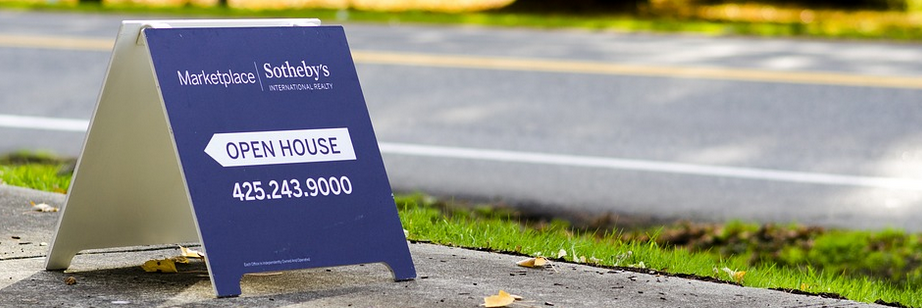No, no, no… I’m not going to talk about buying US real estate. Even though you should think about it…
Actually… I’m going to talk about it for just a little bit:
US real estate is not particularly cheap right now… and it’s not crazy expensive either. But, it is extremely easy to buy a home with very little down – that means little risk to you. Of course, this is a dangerous setup for a potential crash in the real estate market. Once more and more buyers (who shouldn’t be buying in the first place) buy homes they can’t afford, we will see a repeat of 2008. For now, we will probably not see a situation like that – we’ll probably see a market downturn due to junk bonds defaulting.
Another interesting development that has taken place over the past month is Brexit. The US may see capital inflows unlike any other time in history. People have lost confidence in the EU, China, Africa, Latin America… everywhere! And even though the US has plenty of it’s own problems (like a mountain of debt, an upside down retirement system, social unrest and all kinds of other conflicts), it’s still the ‘best’ place on earth to put your money. Or, so the average investor thinks.
But, we’re not the ‘average investor’… we’re smarter than that… right?
We are not fuzzy sheep stamping our hooves along down the road. We think for ourselves… and we realize that even though the US is perceived as the safest investment out there, we can still do better.

Many international investors are looking with big eyes at the US because yields have not gone negative.
Countries like Japan, Denmark, Sweden, and Switzerland have negative interest rates. That means that they charge you money if you invest with them; not the other way around. What a horrible business model!
Here’s a link to Wikipedia’s interest rate chart for most countries. Although it’s not up-to-date to the day, it gives some interesting perspective as to what’s going on with developing nations versus matured. Keep in mind that all those countries with very high interest rates have very high inflation.

That’s what governments can do when they control the money supply and the policies which we must all abide by. They make the rules.
It sucks playing in a game where the rules change. No one wants to play. It’s unfair.
You and I, however, don’t have to even enter that game. We can go somewhere else. We can take our ball and go find a new game to play.
That’s the beauty of the time we are living in. We can travel inexpensively, communicate with people around the world instantaneously and have access to endless amounts of information.
Although… we do have to do the work. The plain old hard work.
So, back to the part where we make money from real estate. How do we do that? Especially if it isn’t in the US?

Most people would be shocked to find out that you can own property in foreign countries. In fact, sometimes the property rights in foreign countries are better than here in the US. Lower (or sometimes zero) property taxes, no ‘imminent domain’ laws, and significantly less regulation as to how you can use the land sweeten the deal even more.
Additionally, the laws and tax incentives around real estate can be much, much more tailored towards the investor.
Things like lower capital gains tax (if any), lower transfer fees, faster transaction times, and no assessment requirements (if you have done any US real estate business, you know what I’m talking about).
There are certainly risks and confusing things that come with international real estate. Language barriers, cultural oddities and inefficient business practices can scare even the most gung-ho investors away.
Patience and understanding go a long way in the international real estate world. And with that patience and understanding can come huge profits.
Right now, in at least 5 countries, the cost of construction is more expensive than the cost of real estate.

Think about that for second. That means that it is cheaper to buy a home with land, finishings, landscaping, and all the work done… than it is to build a new home.
What do you think will be the long term effect?
I’ll tell you… People will buy all of the homes that are already built. Then supply will run short. There will be no other option for a new home other than to build one. The cost to build a home will be more expensive than it is to buy a used one…
That will not last long. The values of the older homes will rise because they will compete with the higher prices of the newly built homes.
The point is that you cannot lose money – for long – on a home that costs less than its replacement cost.
Blackstone (world’s largest real estate private equity fund) and American Homes 4 Rent are two of the most famous companies that own tens of thousands of US homes. They bought all the homes after the housing crisis in 2008. They bought the homes for less than their replacement cost… and guess what?… they made a ton of dough!
Construction cost is not the only thing to look at. Market conditions, currency issues and political stability are also very important factors.
I have already listed the top 5 countries for major gains… These countries, however, have a long road of difficulties ahead of them. They may even see much more pain in the future.
However, if the properties are yielding a profit at the current price, then it’s a no brainer.
Here is what I mean:
Say we buy a house in Colombia. This house is nice. Really nice. We’re talking infinity pool, five bedrooms, maid’s quarters, great location, it has everything! This would be a multi-million dollar house in Los Angeles.
But… because Colombia has a bad reputation, has a weak currency, and traditionally less-than-stable government, this home is only $100,000.
So, we buy this house for $100,000. And we rent it out for $2,000 a month. That’s $24,000 a year. That’s a 24% return. Pretty good, if you ask me. (Which, by the way, is pretty close to some of the deals going on in that country right now).
Now, let’s say we keep the house for four years.
Colombia’s reputation then gets better (which it is). Colombia’s government becomes more stable (which it is with the signing of peace treaties with the FARC). The Colombian Peso comes back to parity (which it has not yet).
We could see the value of the home easily double. If not more.
So, then we are faced with this situation: Earn a steady 24% a year OR sell our home to double our money… ohhh… very difficult. Either way, it’s a terrific investment.

Here is a quick rundown of what you should look for in foreign real estate:
– Value. The property must be more valuable than it is selling for. Whether it’s the crops it produces or the home that it has, the property much be selling for a discount to it’s tangible value.
– Yield. The property must yield a healthy return at its discounted value. Do not hope for a future yield.
– Location. Do not buy in a bad location hoping that the area will improve.
– Condition. Do not buy a home to rehab (unless you are going to live in it). You are not a foreign house flipper. If you think you can or want to be, I encourage you to talk to someone who has done it. Like me. Don’t do it.
– Market. Buy at the bottom of the market. Even if you find a smoking deal, but the market is hot, do not buy. There is a reason why property prices are cheap. You must buy at the bottom; that’s where the profits are.
– Political environment. Buy into an improving situation, not a deteriorating one. Chile is great to buy right now. Venezuela is not; although, it will be eventually.
– Money. Determine how you will get your money in and out of the country. Easier in concept than in practice.
– Other advantages. Many countries offer residency or citizenship opportunities with property purchases – make sure you take advantage of them. Panama, for example, has the best path to citizenship out there, and they also have great property tax credits – zero for 20 years!



